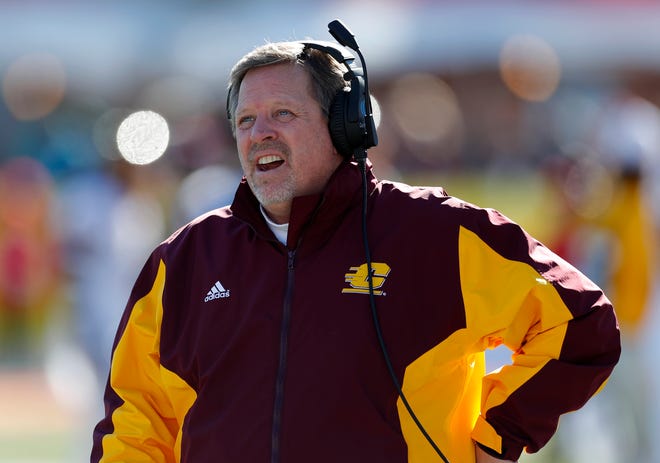CMU AD, top-paid coaches taking salary cuts, joining other state schools
 Tony Paul
Tony PaulWhile the state's Division I college athletic budgets remain up in the air amid the COVID-19 pandemic that has zapped millions from their coffers, individual pay cuts are becoming the norm as a temporary solution.

Central Michigan will officially announce Monday that athletic director Michael Alford will get a pay cut of 8 percent, while the school's highest-paid coaches — football coach Jim McElwain, men's basketball coach Keno Davis and women's basketball coach Heather Oesterle — each will see a base-pay reduction of 6 percent. Central Michigan's two deputy athletic directors each will get a 2-percent pay cut.
That directive falls in line with what some other athletic departments have done, or are planning to do.
At Western Michigan, athletic director Kathy Beauregard gets a 10-percent reduction, while all its coaches and athletic-department staffers are getting a 2.25-percent reduction, in line with a university-wide mandate.
At Eastern Michigan, athletic director Scott Wetherbee voluntarily took a 7-percent pay cut.
"Us at the top as leaders need to lead by example," Wetherbee said.
More: Niyo: Is college football ready to play follow the leader?
Like at Eastern Michigan, no coaches have been affected by pay cuts yet at Oakland University, though athletic director Steve Waterfield, as a university executive, will see a reduction of between 3 and 5 percent.
It's not just the mid-major schools being affected, either. In mid-April, Michigan athletic director Warde Manuel announced he is taking a 5-percent pay cut, while Michigan State athletic director Bill Beekman will get a reduction of between 2 and 7 percent.
Each of the aforementioned schools' presidents also are taking pay cuts.
There is no information available from the state's other Division I school, Detroit Mercy, which is private and isn't subject to public reporting.
The COVID-19 pandemic caused the cancellation of one of the NCAA's signature events, the men's basketball tournament, which generates $800 million annually in TV money alone — costing member schools seven-figure distributions. The NCAA then canceled the rest of its winter championships, and canceled all spring sports. Athletic executives are trying to figure out what will happen with football this fall.
tpaul@detroitnews.com
Twitter: @tonypaul1984